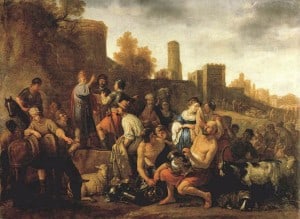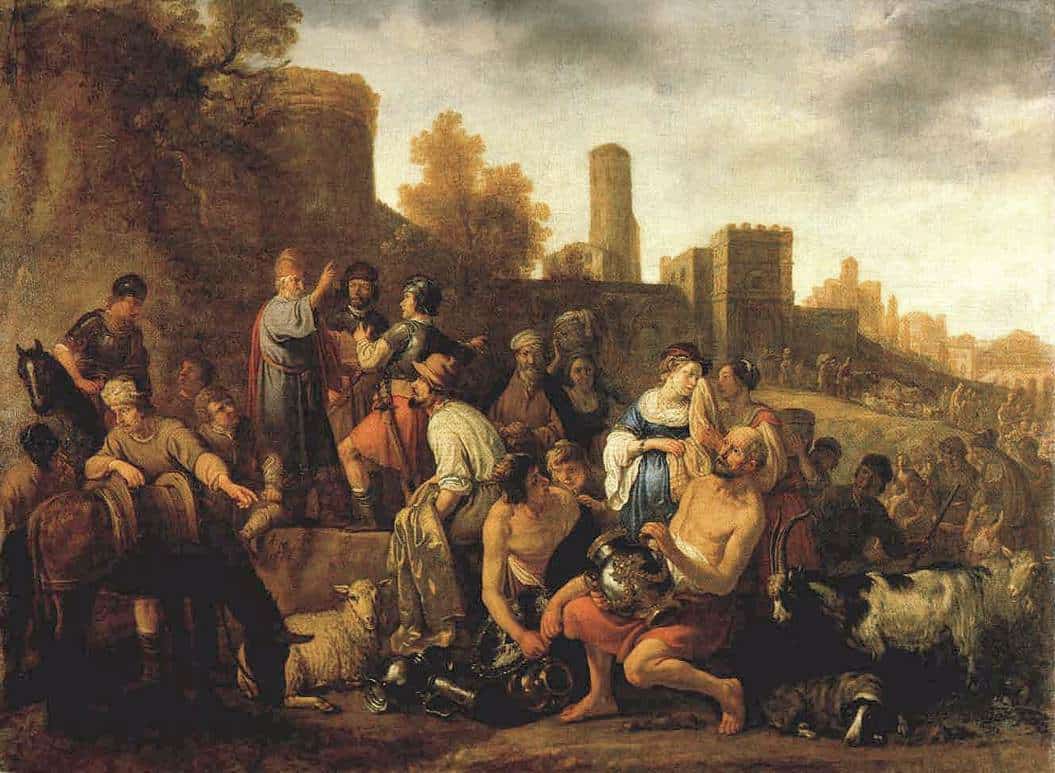Parshat Matot (Numbers 30:2-32:42) — Looks at the importance of words, actions and destiny.
Shorashim study and Overview
 Moshe convenes the heads of the tribes and relays to them the laws governing the annulment of vows.
Moshe convenes the heads of the tribes and relays to them the laws governing the annulment of vows.
What makes the set of laws regarding vows so unusual, from everything else that we have heard Moshe teaching?
Why is it important that we know that Moshe first convened all the heads of the tribes together with regards to the annulment of vows?
Hashem declares that the Israelites war against Midian for their role in plotting the moral destruction of Israel:
Take revenge for the children of Israel against the Midianites; afterwards you will be gathered to your people.”( 31:2)
Yet then in verse 3 we read:
So Moshe spoke to the people, saying, “Arm from among you men for the army, that they can be against Midian, and carry out the revenge of HaShem against Midian.”
Which is it — ” revenge for the children of Israel against the Midianites or the “ revenge of HaShem against Midian.”?
Why is Midian set apart for vengeance and not Moab?
The Torah gives a detailed account of the war spoils and how they were allocated and how they are to be purified.
Why?
The tribes of Reuben and Gad have become wealthy, laden with sheep and oxen. They do not want to cross the Jordan but rather want to stay on the abundant land on the east side of the Jordan. In their words we learn of their mistaken set of Priorities
Which verse is that?
Moshe is angered by their request. He subsequently agrees but demands that they first join, and lead, in Israel’s conquest of the lands G-d has promised G-d also tells half of the tribe of Menasshe to join them.
In the verses again we see that these two tribes miss the point. Which verses are they?
Why was half the tribe of Menasshe joined to them?
Where did half the tribe of Menasshe settle and why did their land remain part of the land of Israel while the others did not.
Where do we see this disagreement coming up again in the book of Joshua?
Listen to this week’s podcast:
